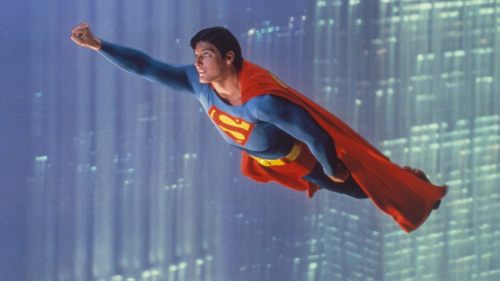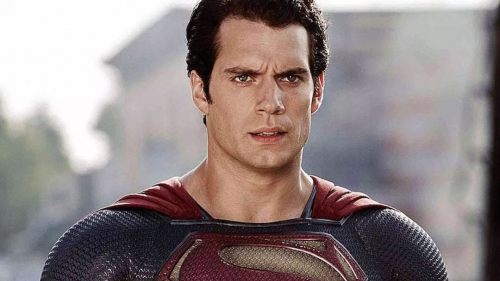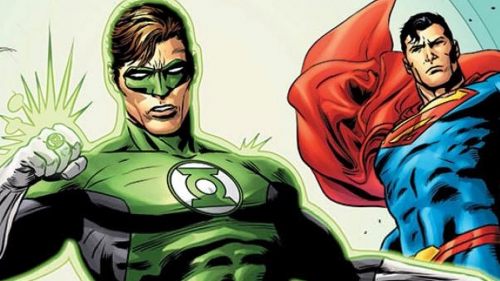Say Something Nice: SUPERMAN IV - THE QUEST FOR PEACE
By 1987, the Superman movie series that took flight with such poise and promise nine years earlier was hurtling Earthward faster than a speeding bullet. Although that first entry from 1978 essentially introduced the big budget, big stakes, big spectacle comic book opuses that audiences continue to partake of to this very day, the Superman series arguably never reached those heights again.
The first sequel, 1981’s Superman II - although a financial success, and beloved in its own right - was buffeted by behind-the-scenes drama that saw Richard Donner shown the door by producers Alexander & Ilya Salkind and replaced by A Hard Day’s Night helmer Richard Lester. Meanwhile, 1983’s Superman III was beset by the questionable decision to make Reeve play straight man to the comic stylings of Richard Pryor, with the box office taking a predictable dive. And the less said about the Salkinds’ 1984 failed spin-off Supergirl, the better.
All of this brings us to Superman IV: The Quest For Peace. By this time, the Salkinds had cut bait with the big screen Super-franchise and sold the rights to producers Menahem Golan & Yoram Globus, the Israeli cousins whose Cannon Films was widely renowned/reviled for shlock like the various Death Wish sequels and Breakin’. And though they had designs on using a revived Superman series as their ticket to big budget respectability, things didn’t quite go as planned.
For one thing, the Cannon cousins had no concept how to bring a project of this scope and complexity to fruition. For another, they had to convince Chris Reeve to don the cape again, which they did by promising to fund a pet project of his (1987’s Street Smart, which snagged co-star Morgan Freeman his first Oscar nomination) and by assuring the waffling hero that Superman IV would be based on his story, with Superman faced with the nuclear arms race between the United States and the USSR and having to decide whether being the most powerful man on the planet means it’s his job to save us from ourselves.
It wasn’t a bad idea, and Reeve had big designs on putting the band back together that had made the 1978 original such a favorite. But while the onscreen supporting cast quickly signed up (including Gene Hackman for his third appearance as baddie Lex Luthor), the behind-the-scenes personnel demurred one-by-one. First Donner, citing too much water under the bridge. Then screenwriter Tom Mankiewicz, who found it difficult to find a realistic “in” to Reeve’s story. Even composer John Williams passed due to scheduling (though he would compose three new cues used throughout the eventual film).
Reeve probably saw his career flashing before his eyes as he watched his high hopes for this fourth Superman entry run steadily aground. And then, finally, the unkindest cut: Cannon slashed the budget to less than half of the initial $40 million. From there, the cake was well and truly baked. The film, directed by Golan & Globus regular Sidney J. Furie, arrived in August ‘87 and failed to even make back its $17 million budget at the domestic box office. How far the Man of Tomorrow had fallen. Not only did this bring the curtain down on Christopher Reeve’s decade-long tenure as a bankable star, it also marked the unfortunate end of Superman on the big screen for the next nineteen years.
So, yes, Superman IV: The Quest For Peace is objectively bad by a variety of measures. The story doesn’t make much sense, the effects are nonexistent, and it’s clearly been hacked to pieces, with much of the plot and character development left as cutting room floor casualties. But even within this mess of a movie there’s one bit of business that makes it worthy of accolades three decades after its abbreviated theatrical run. The moment comes as we’re winding down, with Superman realizing it was never in his power to rid the world of nuclear weapons, and sharing this realization with the people of the world:
“When you really look at it, it’s just one world.” Powerful words made more powerful by the person saying them: Superman. And Christopher Reeve. For many, Reeve is and always will be their definitive onscreen Superman, and in a lot of ways this speech is the apotheosis of his tenure thanks to how familiar and beloved he’d become in the part. He’s the friend/father figure ready to help us be the best version of ourselves. For nine years, Christopher Reeve effortlessly embodied the spirit of heroism, humanity, and humility so key to Superman’s enduring appeal, and even in the midst of this, his lowest ebb as the character, he still found a way to make us believe we could fly.



